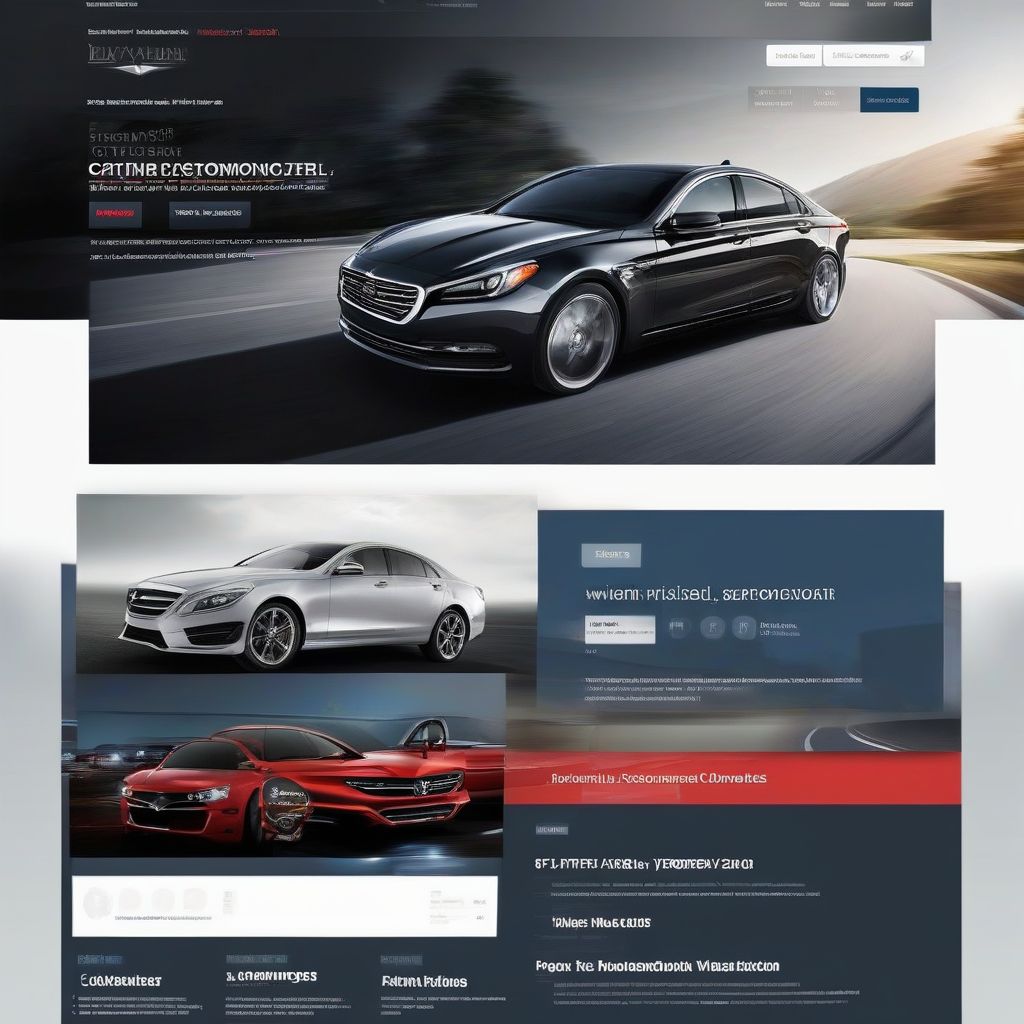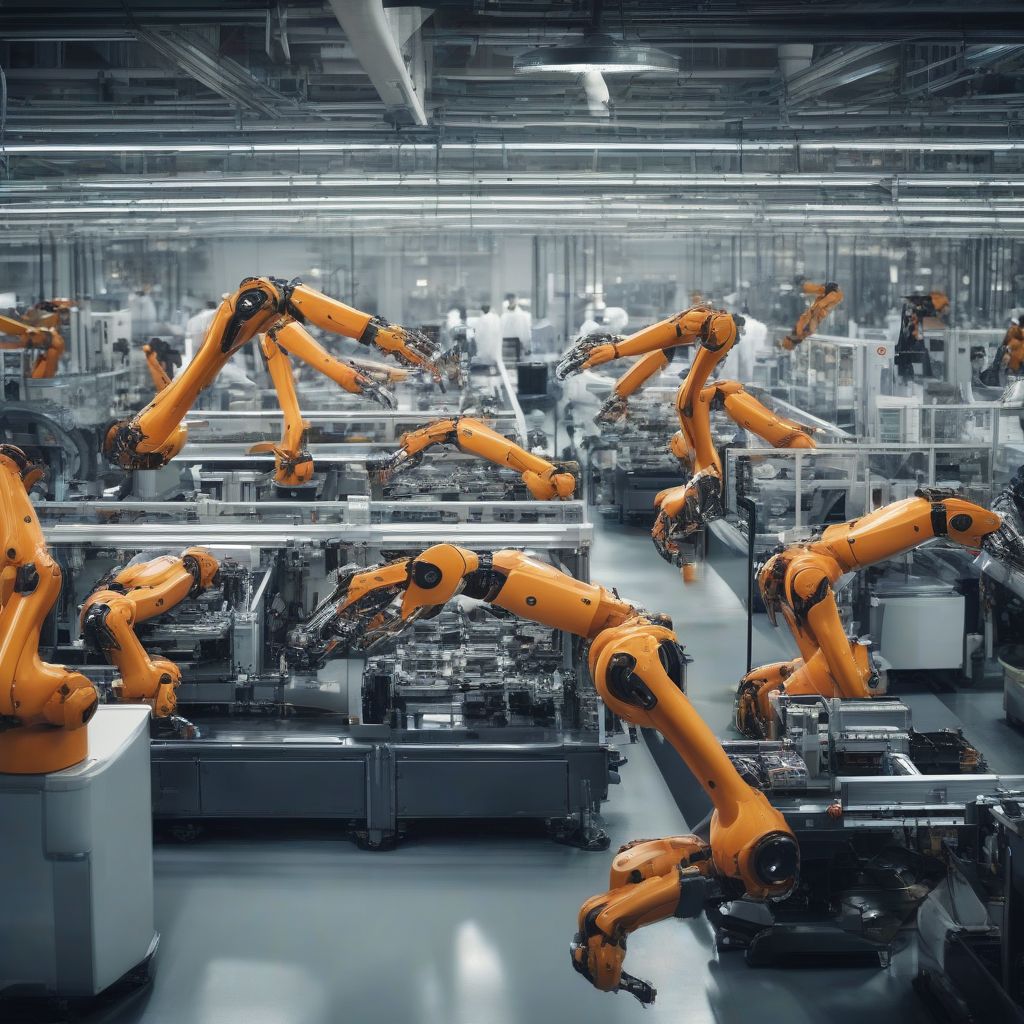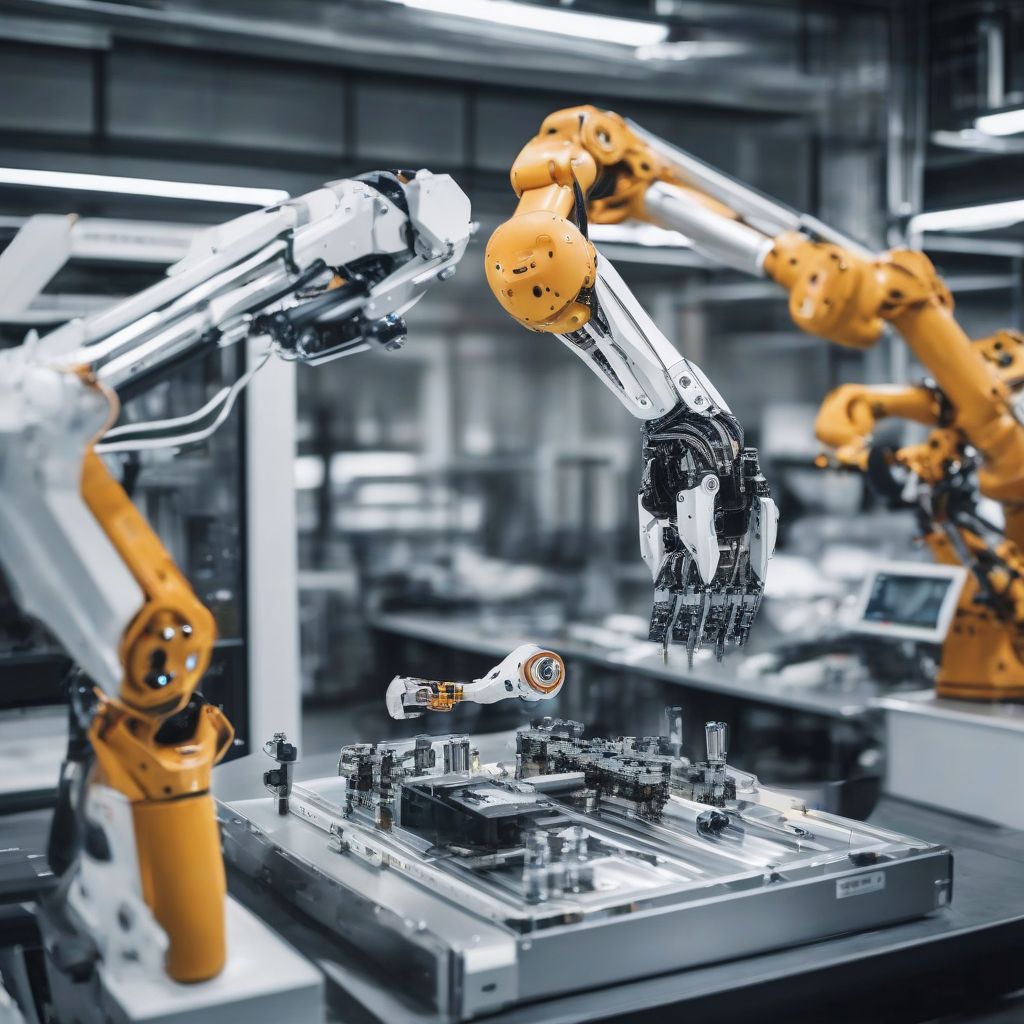The automotive industry is on the cusp of a revolution. Driven by technological advancements, specifically in automation, control systems, and robotics, the way cars are designed, manufactured, and experienced is changing at an unprecedented pace. At the heart of this transformation is “M-tech Automotive,” a term that encapsulates the convergence of manufacturing, mechanics, and digital technology in the automotive sector.
Understanding the Importance of M-tech Automotive
M-Tech Automotive represents a significant leap forward from traditional automotive engineering. It signifies a shift towards smarter, more efficient, and ultimately safer vehicles. Here’s why M-Tech is so crucial:
-
Enhanced Manufacturing: Automation in car manufacturing isn’t new, but M-Tech takes it to the next level. Think intelligent robots working alongside human technicians, optimizing production lines, and minimizing errors. This translates to faster production cycles, higher output, and ultimately, more affordable vehicles.
-
Advanced Driver-Assistance Systems (ADAS): M-Tech is the driving force behind the development of sophisticated ADAS features. From lane-keeping assist and adaptive cruise control to automatic emergency braking, these systems rely on intricate sensors, complex algorithms, and real-time data processing—all hallmarks of M-Tech.
-
The Rise of Autonomous Vehicles: The dream of self-driving cars is fast becoming a reality, and M-Tech is the engine behind it. Autonomous vehicles require a complex interplay of sensors, artificial intelligence, machine learning, and high-precision mapping—all areas where M-Tech plays a pivotal role.
-
Connected Car Experiences: M-Tech enables vehicles to become part of a larger ecosystem. Cars can communicate with each other (V2V communication), with infrastructure (V2I), and with pedestrians (V2P), paving the way for safer roads, optimized traffic flow, and even new business models.
Delving into the Common Queries about M-tech Automotive
The rapid evolution of M-Tech has sparked considerable curiosity. Let’s address some of the most frequently asked questions surrounding this exciting field:
1. What are the key skills needed for a career in M-Tech Automotive?
A successful career in M-Tech requires a multidisciplinary skillset encompassing:
- Technical Expertise: A strong foundation in mechanical engineering, electrical engineering, software engineering, or a related field is essential.
- Software Proficiency: Proficiency in programming languages like Python, C++, and experience with platforms like MATLAB is highly valued for developing and implementing algorithms.
- Data Analysis: The ability to analyze large datasets, identify trends, and derive insights is crucial for optimizing systems and improving performance.
- Problem-Solving: M-Tech involves tackling complex challenges and finding innovative solutions, making strong analytical and critical thinking abilities paramount.
2. How is M-Tech impacting the job market in the automotive sector?
While automation might replace certain repetitive tasks, M-Tech is also creating a surge in demand for skilled professionals who can design, implement, and maintain these advanced systems. Expect to see rising demand for:
- Robotics Engineers
- Software Developers (with specialization in AI/ML)
- Data Scientists
- Cybersecurity Experts
- Functional Safety Engineers
3. What are the ethical considerations surrounding M-Tech Automotive?
As with any transformative technology, M-Tech brings ethical considerations to the forefront:
- Job Displacement: The automation potential of M-Tech raises concerns about job displacement in traditional automotive manufacturing roles.
- Data Privacy: Connected and autonomous vehicles generate massive amounts of data, necessitating robust data privacy and cybersecurity measures.
- Algorithmic Bias: AI algorithms used in M-Tech applications need careful development and training to prevent biased outcomes that could disproportionately impact certain groups.
- Liability Issues: Determining liability in the event of accidents involving autonomous vehicles is a complex ethical and legal challenge that requires careful consideration.
The Future Landscape of M-tech Automotive
M-Tech Automotive is still in its early stages of development, but its potential impact on our lives is undeniable. Here are some key trends to watch:
- Increased Vehicle Autonomy: Expect to see a gradual shift towards higher levels of vehicle autonomy, from Level 3 (conditional automation) to Level 5 (full automation) in the coming years.
- Personalized Mobility Solutions: M-Tech is facilitating the development of customized mobility solutions tailored to individual needs and preferences, such as on-demand autonomous ride-hailing services.
- Sustainability Focus: M-Tech is playing a crucial role in developing electric and hybrid vehicles, as well as optimizing fuel efficiency in traditional combustion engines.
Conclusion: Embracing the M-Tech Revolution
M-Tech Automotive is not merely an evolutionary step but a revolutionary leap in the automotive industry. It holds the promise of safer, more efficient, and more sustainable transportation solutions. By embracing the challenges and opportunities presented by M-Tech, we can shape a future where mobility is not only convenient and personalized but also safer and more environmentally friendly.


